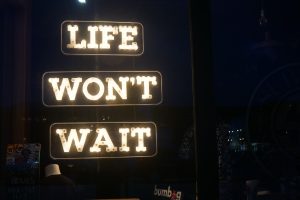This post is written for anyone 50+. It is time to claim our space and own who we are at this point in time. Once we understand ourselves, it is easier to understand others. And language is powerful.
Since the most important person to lead is oneself, I am focused on helping employees aged 50+ find meaning and purpose after their main career. Beyond the Money (BTM) is a series of workshops I developed to help people think and plan for life beyond. Beyond is a holistic approach to thinking about retirement.
- Who are we beyond work
- Sage-ing or conscious aging is beyond physical health, beyond emotional health, beyond career well-being
- This work is beyond most retirement planning preparation.
My message is beyond what most people have considered for the next phase of life. I say I am out to retire the word “retirement.” They say boomers are not going to live their parents’ retirement. So what do we call this phase of life?
Boomers don’t like the word “elder” (An elder is a sage so I actually like this word.). So Elderhostel changed their name to Road Scholar. Boomers also don’t like the word “retired persons.” So AARP which stands for American Association of Retired Persons now just uses the acronym AARP. We are living in uncharted territory with this extended life phase between 55-85. This is a time when most people can still be active and many want to continue to contribute and stay engaged in life. The following terms are often used to describe this time:
- next phase of life
- second half of life
- third chapter of life
- positive aging
- conscious aging
- intentional aging
- and there are many more …
Last week I interviewed someone for my podcast series titled Becoming a Sage and she uses the term “olders” because she said we are all aging from the day we are born. Age is all relative as it depends on the context. We are older than some and younger than some. So she refers to people in this phase as “olders” and I like it.
I interviewed Barbara Waxman who is on a mission to create a new term for this phase–Middlescence. She makes a strong argument using adolescence as an example. The life phase of adolescence didn’t exist until the Industrial Revolution when children left farms to work in factories. To give a brief explanation of this phase, Waxman says it this way:
“For as long as anyone can remember, we’ve associated midlife with unwelcome life changes and stagnation. Between ages 45 and 65, right when we should be embracing life at the peak and taking advantage of our hard-earned wisdom, we often find ourselves tangled in questions about where we’ve been and what’s next. In adolescence, we all experienced a major transition in who we were and how we saw the world. In Middlescence, we encounter another major change, but this time we can marshal the wisdom and wherewithal to take full advantage of the promise of this life stage.”
Waxman’s term of Middlescence resonated with me so I bought her book. In future posts, I will be sharing more of what I learned from my conversation and from reading her book.
How are you taking advantage of this life stage?
How are you sharing your wisdom with others?
What kind of legacy are you leaving?
 Sign Up and Download Your FREE Copy of The Top 5 Actions For Creating Your Own Breadcrumb Legacy™
Sign Up and Download Your FREE Copy of The Top 5 Actions For Creating Your Own Breadcrumb Legacy™

